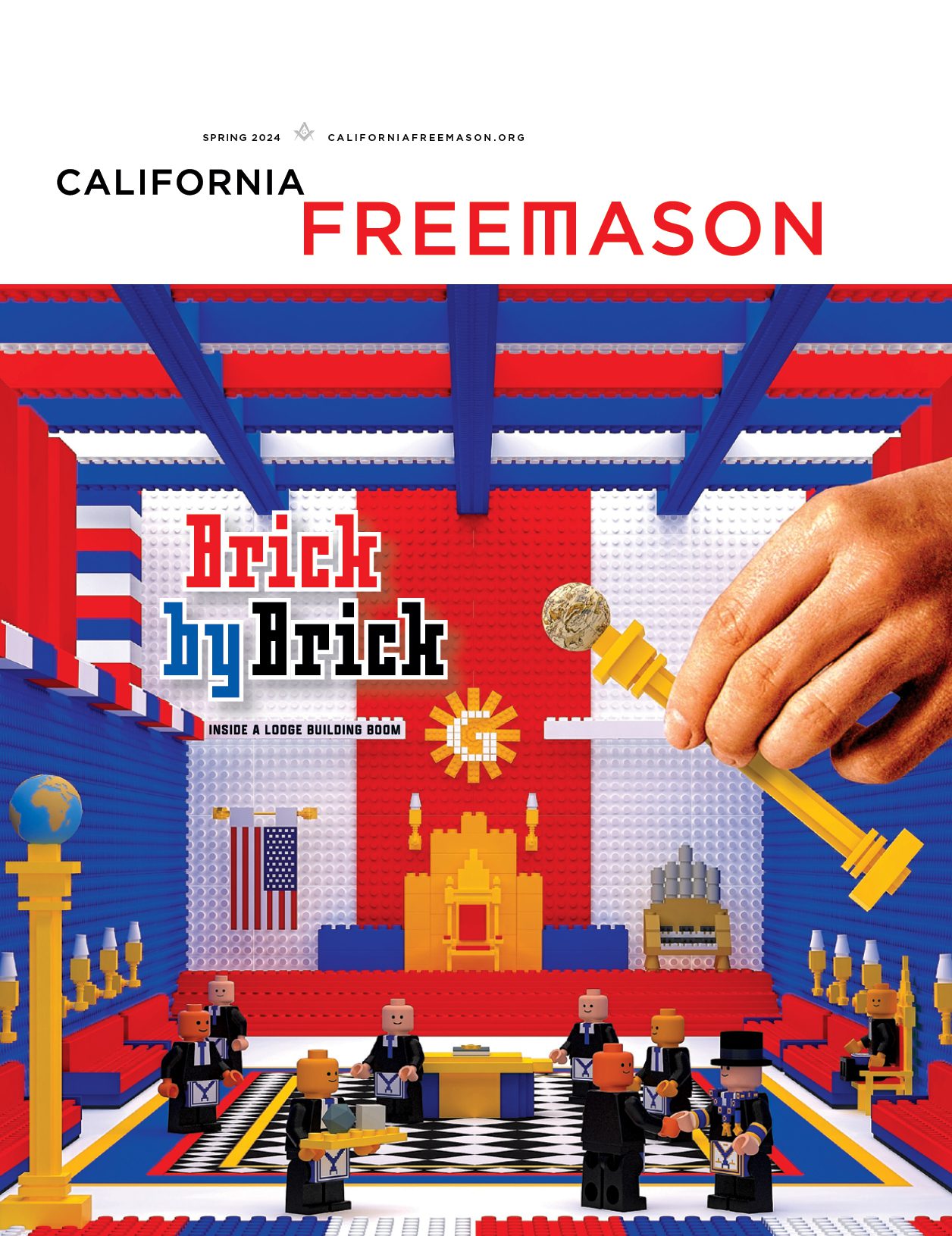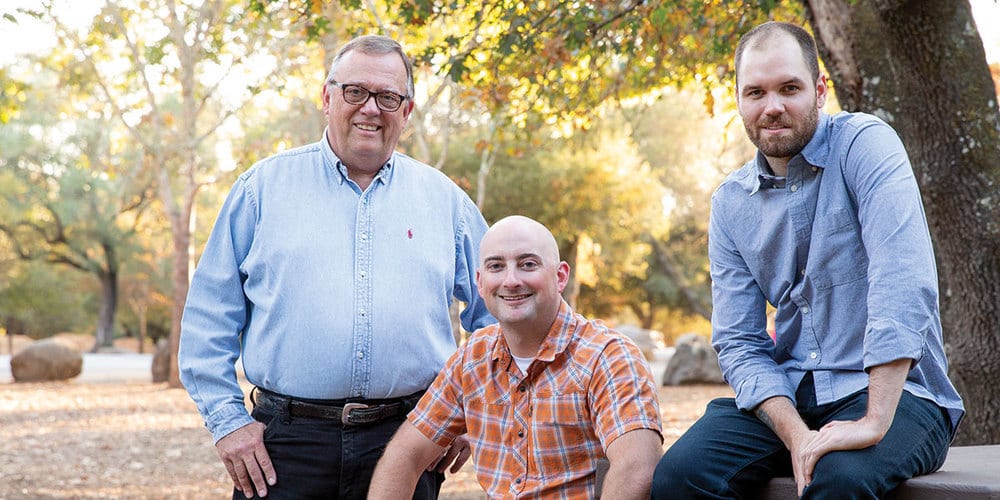A Masonic Mystery in Miniature
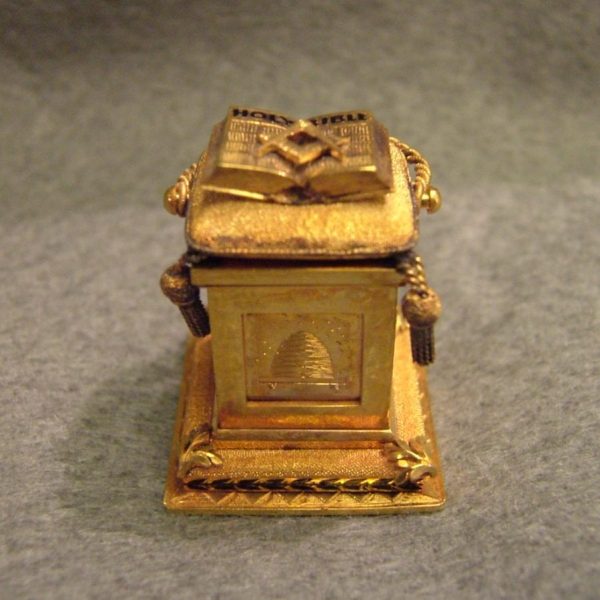
To paraphrase the immortal words of Derek Zoolander, what is this, a lodge room for ants?
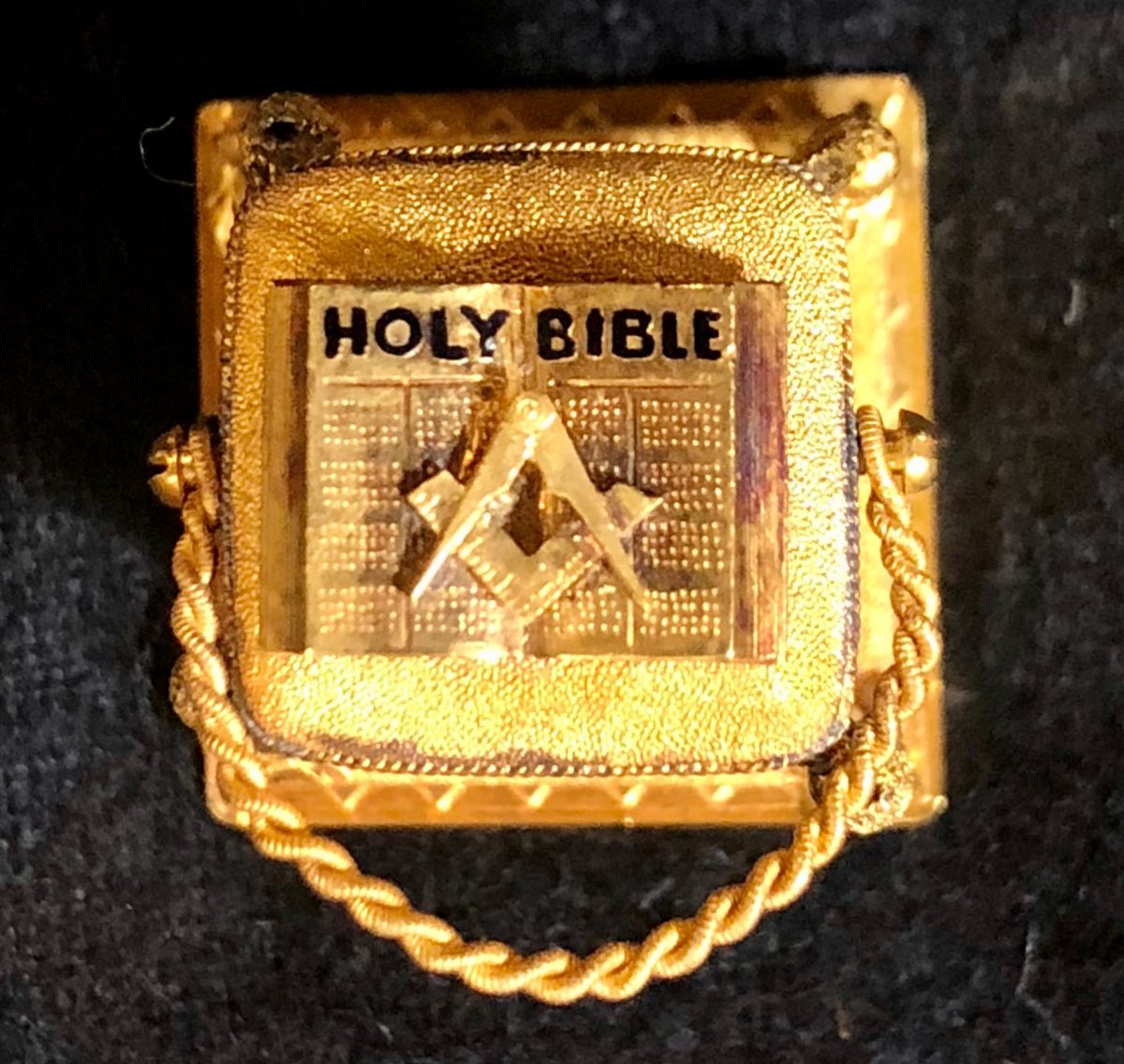 Sadly, no. But this miniature, golden metal altar—found in the Henry W. Coil Library and Museum of Freemasonry—is undeniably cool. As for what, precisely, it’s for? That’s less clear.
Sadly, no. But this miniature, golden metal altar—found in the Henry W. Coil Library and Museum of Freemasonry—is undeniably cool. As for what, precisely, it’s for? That’s less clear.
These kinds of highly detailed miniatures and maquettes are a common motif within the folk art tradition—one that shares a lot of history with Freemasonry. In some cases—as with the miniature lodge room-in-a-box that was recently featured in California Freemason magazine—they’re instruments that help initiates absorb Masonic teachings and test their knowledge. In other cases, they’re simply sentimental trinkets created and sold by those in the fraternity. For some, objects like these can be physical conduits to their spiritual lives—like how some people carry a rabbit’s foot for luck or hang a rosary from their rearview mirror. Might the owner of this miniature altar have felt for his golden keepsake to clear his mind in moments of stress? As with so much else in Freemasonry, it’s a mystery.
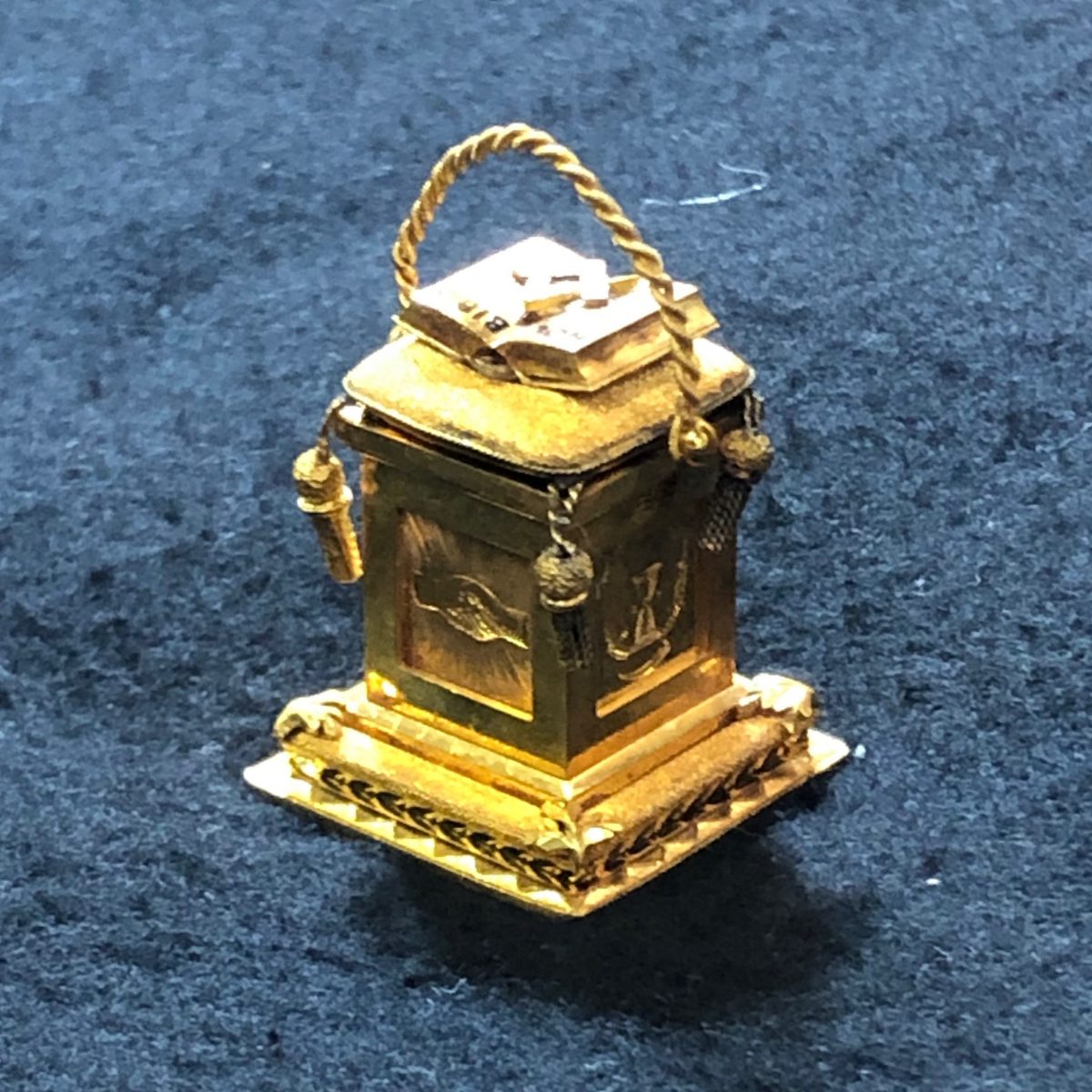
The specifics in this case are pretty sparse. The piece dates from the early 20th century, although there’s no information about its donor. The altar is decorated on all four sides with Masonic symbols including the all-seeing eye, the beehive, the scythe, and the hourglass. The altar is sharply embellished with trim around the base platform, and on top is a tasseled cushion with the Holy Bible and square and compass.
Physically small, yes; but as you can see, potentially weighted with meaning.
Do you have any Masonic trinkets? Share them with us on social media using the hashtag #MasonicFolkArt.
Special thanks to Collections Manager Joseph Evans. Image courtesy of the Henry W. Coil Library and Museum of Freemasonry. The library serves as a research source for Masons, academic scholars, and others who wish to explore the history of Freemasonry in California. Visit the library and museum online at masonicheritage.org.
